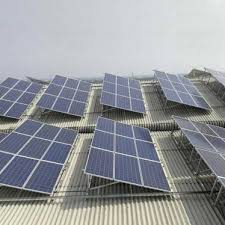Solar panel subsidy
Solar panel subsidies are government incentives designed to encourage the adoption of renewable energy, particularly solar power. Various groups can benefit from these subsidies:
1. Homeowners
Primary beneficiaries of solar panel subsidies are homeowners who want to reduce their energy costs and transition to greener energy.
These subsidies can cover part of the installation costs, making solar systems more affordable.
Homeowners with high electricity consumption can particularly benefit, as solar can significantly lower their utility bills.
2. Low-Income
Households
Many subsidy programs are aimed at helping low- and moderate-income families access solar energy by offering extra incentives or low-interest loans.
These programs can help reduce energy inequality by making solar more accessible to people who may not have the capital for upfront costs.
3. Small and Medium
Businesses
Small businesses can benefit by installing solar to lower operational costs, especially businesses with high energy demands.
Governments often offer commercial solar subsidies and tax
incentives to businesses that transition to renewable energy sources.
4. Farmers and Rural
Communities
Agricultural operations and rural properties often benefit from solar subsidies, especially where utility grid access is limited.
Farmers can use subsidies to install solar on large land areas or on agricultural buildings to meet their energy needs, making their operations more sustainable.
5. Nonprofits and
Community Organizations
Nonprofit organizations may not qualify for tax credits, but many subsidy programs offer grants or specialized incentives for community centers, churches, and schools to install solar energy systems.
These groups benefit from reduced energy costs while promoting environmental sustainability.
6. Large Enterprises
Corporations with large facilities may also take advantage of solar subsidies to reduce their carbon footprint and energy costs.
Governments often encourage corporate investments in renewable energy with larger-scale incentives like tax credits, depreciation benefits, and rebates.
7. Developers of
Solar Projects
Solar developers benefit from subsidies when installing large-scale solar farms or community solar projects. These incentives make it feasible to offer solar energy to a wider community.
8. People Installing
Community Solar Projects
Community solar projects allow individuals to share the benefits of a solar system, without installing panels on their property. Subsidies help make these projects viable by lowering costs for participants.
Benefits of
Subsidies:
Lower upfront costs of solar installation.
Faster return on investment.
Reduced monthly electricity bills.
Increased access for diverse income levels.
Contribution to cleaner energy and reduction of carbon footprint.
These subsidies vary by country, state, or local jurisdiction, but they aim to make solar energy more affordable and accessible to a broader range of people and organizations.
.jfif)
.jpg)


Comments
Post a Comment